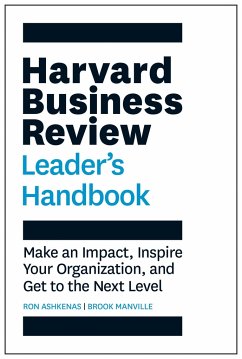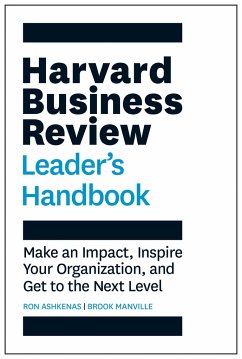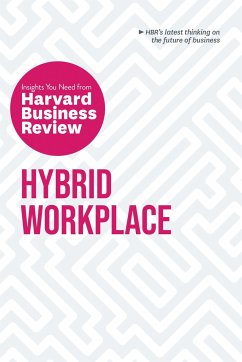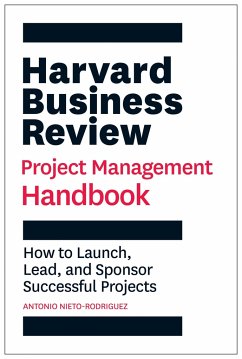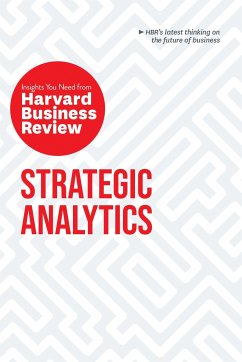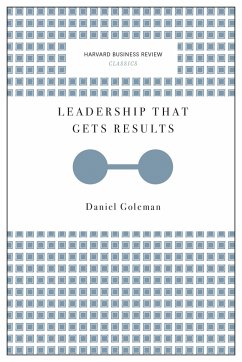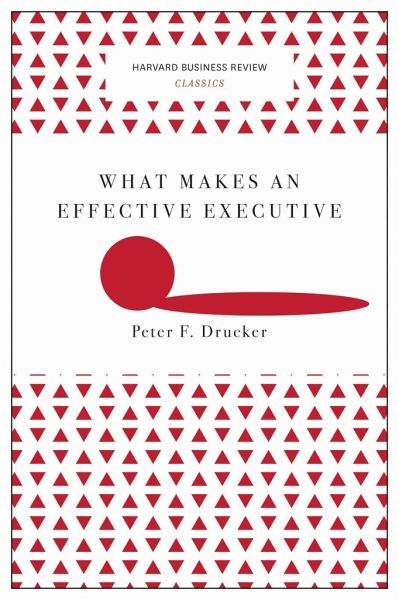
What Makes an Effective Executive (Harvard Business Review Classics)

PAYBACK Punkte
5 °P sammeln!
An effective executive does not need to be a leader in the typical sense of the word. Peter Drucker, the author of more than two dozen Harvard Business Review articles, wrote that some of the best business and nonprofit CEOs he worked with over his 65-year consulting career were not stereotypical leaders. They ranged from extroverted to nearly reclusive, from easygoing to controlling, from generous to parsimonious. What made them all effective is that they followed the same eight practices: They asked, "What needs to be done?" and "What is right for the enterprise?" They developed action plans...
An effective executive does not need to be a leader in the typical sense of the word. Peter Drucker, the author of more than two dozen Harvard Business Review articles, wrote that some of the best business and nonprofit CEOs he worked with over his 65-year consulting career were not stereotypical leaders. They ranged from extroverted to nearly reclusive, from easygoing to controlling, from generous to parsimonious. What made them all effective is that they followed the same eight practices: They asked, "What needs to be done?" and "What is right for the enterprise?" They developed action plans. They took responsibility for decisions and for communicating. They were focused on opportunities rather than problems. They ran productive meetings. And they thought and said "we" rather than "I." The first two practices provided them with the knowledge they needed. The next four helped them convert this knowledge into effective action, for knowledge is useless to executives until it has been translated into deeds. The last two ensured that the whole organization felt responsible and accountable. Effective executives know that they have authority only because they have the trust of the organization. This means they must think of the needs and opportunities of the organization before they think of their own. Drucker also suggests a ninth practice that's so important, he elevates it to the level of a rule: Listen first, speak last. Effectiveness is a discipline. And, like every discipline, it can be learned and must be earned.--





